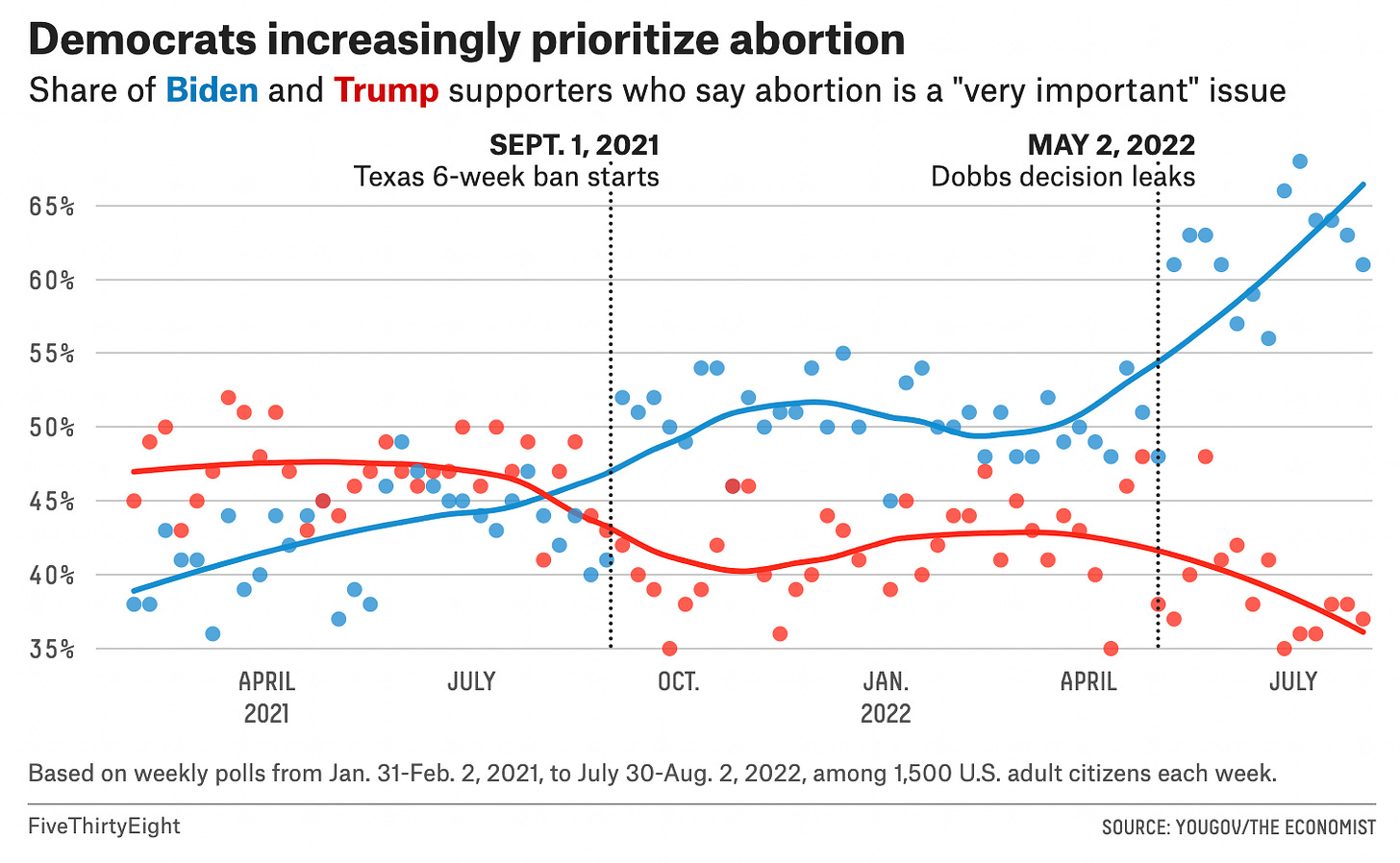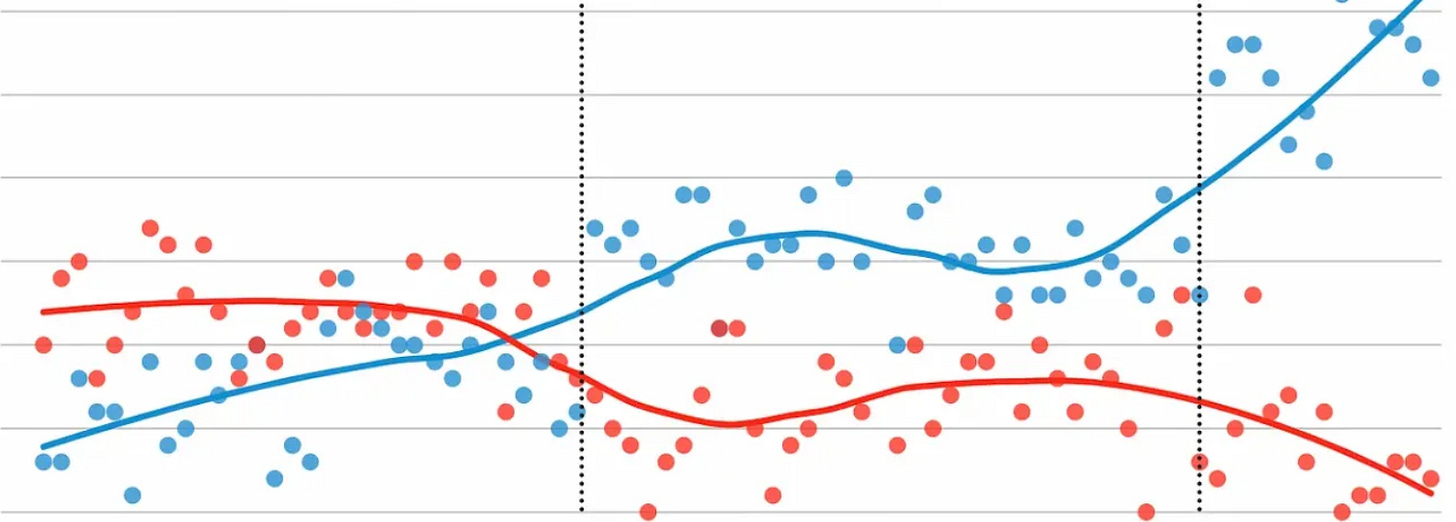Destabilized Saturday Edition #29
The morality of having kids, red state pregnancy scares, a senior citizen NFT training, I say nazi you say not see (let's call the whole thing off)
A few additional thoughts and elaborations related to my piece about the promise and peril of this week’s abortion rights landslide in Kansas:
I implied it in the article, but I should put my cards on the table and say my expectation is the reversal of Roe will be a nontrivial political headwind for Republicans in the coming years. Whether it’s strong or mild will depend on various factors, including what Democrats do.
There are five main reasons I hold this view: 1) abortion rights are popular and have been for decades (and more popular among younger cohorts that have lower turnout rates and therefore contain many more not-yet-voting eligible voters than older cohorts do); 2) the intensity gap, which for my whole life has favored Republicans, has flipped (see the FiveThirtyEight chart below); 3) abortion rights are an issue that affects people’s lives directly and intensely, and which many therefore can’t ignore, e.g., a pregnancy scare for a not-ready-for-kids couple in a red or purple state is now a much more precarious, high-stakes predicament than when Roe was the law of the land; 4) even though #3 is also true of, for example, health care, that’s an area like many where policy is complex and it can be hard to tell exactly what each party would do, whereas abortion is straightforward and it’s clear which party is on which side; and 5) as I wrote this week, Republicans can only moderate their unpopular position a little bit before they anger their base – they’re stuck.

The Supreme Court’s decision to hurl abortion rights back into the political arena will affect most elections to some degree, but may have an especially large effect on future presidential elections. First, the stakes will be (even) higher because a Republican president with a Republican Congress could sign a nationwide abortion ban into law, making abortion illegal in all 50 states (Republicans’ misleading and longstanding “return the issue to the states” mantra always elided this reality). Second, the five core presidential swing states – Michigan, Wisconsin, Pennsylvania, Arizona, and Georgia – all have heavily gerrymandered Republican-controlled legislatures, which means for the foreseeable future all five will have either an active abortion ban (Wisconsin, Georgia beyond 6 weeks), or the looming possibility of one being imposed (Michigan, Pennsylvania, Arizona). Therefore, abortion rights in these states will remain salient. And again, because the conservative base wants abortion banned, it will always be a challenge for Republican candidates to convince voters they won’t do it. Indeed, many will be on video stating clearly they will ban abortion, a commitment they’ll often have to make to win primaries.
This is a situation, as I wrote in my piece, that’s both hopeful and perilous. It’s hopeful because Democrats are the party still committed to democracy and free and fair elections, win or lose. It’s perilous because Republicans have already demonstrated they aren’t willing to accept losing to a diverse, center-left Democratic coalition. They’ll suppress the vote, shatter norms, erode democracy with outrageous lies, and engineer violent attacks on America’s institutions rather than concede power. If the reversal of Roe makes it harder for Republicans to win, it seems highly unlikely they will suddenly change their stripes.
Here, more than almost anywhere else, I would love to be wrong.
My Work
The high stakes-ification of U.S. politics
Since Roe – the entire political life of everyone under 65 – the abortion issue was like a loan to the Republican Party that hadn’t yet come due. The results in Kansas suggests the first repayment notice may have arrived.
Interesting Reads
No mainstream climate models suggest a return to a world as bad as the one we had in 1950, to say nothing of 1150. Was the world so bad, for virtually the entirety of human history, that our ancestors shouldn’t have made our lives possible? If not, then nothing in our near future looks so horrible that it turns reproduction into an immoral act.
Tweets of the Week



Extreme Weather Watch







Creeping Authoritarianism Watch



Joy, Progress, and Hope












